Finding the Mind's Construction in an Interview
On the joy of the interview, plus reflections on my encounters with people like Momus, Pat Kane, Jeffrey Lewis, Franz Ferdinand, Bid, and more.
Of all journalistic forms—column, longform article, review, etc—my favourite is the interview. It is, at its best, a moment where two people can transcend themselves and reach a new understanding of the world. Most celebrity interviews consist of rote clichés in promotion of a new commodity. Such figures are given media training to ensure the conversation stays on track, never straying into difficult topics. And, if they do slip and say something that could be misinterpreted, a grovelling apology is sure to come rather than telling people to read the comment in context.
The first interviews I read were with footballers in Shoot or Match, though they were more like questionnaires. They would ask something like "What is your favourite music?" and the answer would always be "Luther Vandross" (except when Sex Pistols fan, Stuart Pearce, was interviewed). I also read my sister's Smash Hits magazine interviews and watched Saturday morning kids' shows like Going Live, which had the transgressive freedom of the audience phone-in.
As a teenager, I would buy Melody Maker or NME every week. The interview with the cover star was almost always the main feature of these publications. During the Britpop era, musicians gave such entertaining interviews that these were sometimes released on disc and made it into the charts. There were mythic interviews like when Richey from the Manic Street Preachers carved 4Real onto his arm after a question from Steve Lamacq.
Music journalism was so powerful at this point that just being good at interviews was almost more important than your tunes. I never really got into their music, but I loved Orlando's interviews; I had similar feelings about their tour mates Kenickie. Indeed, both Tim from Orlando and Lauren from Kenickie went on to become interviewers themselves.
As an autodidact, I always found interviews to be the best way to get an overview of the culture. For instance, after learning about Will Self from reading about his exploits on John Major's plane, I read his long interviews with JG Ballard and Martin Amis in Junk Mail and it was these that gave me a window into the literary world. The interviewees would casually mention James Joyce, Vladimir Nabokov, William Burroughs and all sorts of other writers I didn't know. A conversation is less imposing than an entire novel, it can give you a sense of what the writer is about and whether it is worth engaging with the products of their mind.
My final project for my Media Studies A-level was to produce a fanzine, Rebel Rebel, which had interviews with Urusei Yatsura and David Devant and His Spirit Wife, both of whom I cajoled into speaking with me after gigs at the Princess Charlotte. Alas, this publication hasn't survived. But what has is The Mind's Construction, the magazine that I edited when I lived in London, which I used as an excuse to talk with people I admired. This week, I thought it would be fun to republish these interviews and add some context.
Patrick Wolf
Interviews are a great opportunity for both artists and journalists to mythologise. I had been intrigued by Patrick Wolf’s stories and tried to turn him into the noble savage of my imagination.
Felipe Fernández-Armesto
Studying in London, I was in awe of this dandyish historian, who I felt was as posh and poised as Anthony Blanche from Brideshead Revisited. I recall his actor son, Sebastian, passing through the living room and laughing at one of my gauche questions.
Bid from The Monochrome Set
I love interviews where there is tension. Simon Armitage’s interview with Morrissey is a great example. Bid was occasionally blunt here and there could have been tension, but he was charming.
Dickon Edwards
I was a big fan of Dickon Edwards’ interviews from his time in Orlando. This interview perhaps has some of what Harold Bloom called anxiety of influence, where you attempt to disavow someone’s influence by being blunt.
Franz Ferdinand
A madcap encounter with a band on the verge of becoming huge, conducted just after their debut single, ‘Darts of Pleasure’, had been released.
Jeffrey Lewis
This interview took place after his gig supporting British Sea Power at ULU. As an indie artist, he would man his own merch stand and I used this position of vulnerability to quiz him.
Dan Rhodes
This interview was laboriously conducted over email. I hate email interviews: it is impossible to catch the nuance in someone’s answer and I came away pretty disenchanted.
Adam Green
This interview happened at the last minute after a friend, Phoebe, who was studying at UCL managed to arrange it. I don’t think it occurred to me at the time how young and naive Adam Green was, but it is obvious in retrospect.
Stewart Home
When I arrived to meet Home in Soho he had a shopping bag full of zines and books for me to study so I could write a more informed article. It reminded me of how much work goes into properly profiling someone. With Stewart Home, though, I think you could read every last word and still he’d be a mystery.
Simon Bookish
Rather than get a well-established celebrity to appear on the front cover of my magazine, I wanted to surf the zeitgeist and have an exclusive with a future star. Simon Bookish never quite made it big, but I stand by my choice. A few years later, he released Everything/Everything, one of the great albums of the Noughties.
Pat Kane
The only interview in this collection conducted in Glasgow, shortly after I moved. I had been working with Idler magazine and Pat Kane had just published a piece which made me curious to find out more about his project.
Momus
This was conducted when Momus was in London to play Colliers Wood Library. I had been obsessed with his LiveJournal and he didn’t disappoint in person.









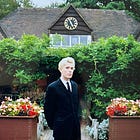
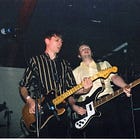
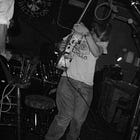

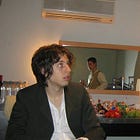
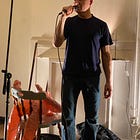
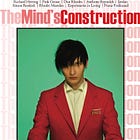

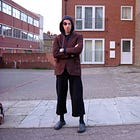
I imagine the "bourgeois bohemian cafe on Byres Road" was Kember and Jones?